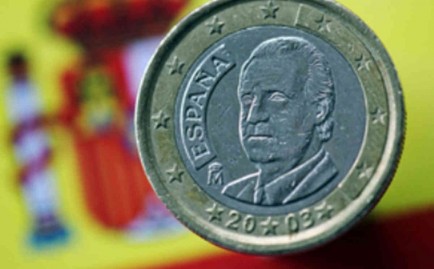
The steady recovery of Spain’s economy is beginning to resonate among the British media.
Following last week’s reports that the Bank of Spain expects Spain’s economy to grow by 2.8 per cent this year, British newspaper The Guardian has waxed lyrical about the country’s recovery, even going so far as to suggest that the crisis is well and truly over…
The past few years have seen Spain receive a sporadic shoeing from leading media outlets in the UK, with glee barely concealed as journalists who evidently knew little about the country’s nuances twisted the knife at a time when millions of Spaniards were already suffering enough.
But credit where credit is due, there does appear to be a growing admission among much of the UK media that Spain is now well on the way to economic recovery, with job rates rising and the property market stabilising.
The Guardian has recognised that Spain is set to be the eurozone’s fourth-fastest growing economy in 2015, behind only Ireland, Latvia and Lithuania, and will reduce unemployment to around 22 per cent – down from 27 per cent in 2013.
With an election looming, it is normal for trepidation to spread across a country as uncertainty as to who will govern takes hold. But in Madrid, The Guardian said, the mood seems triumphalist, with Spain on course for at least five years of economic growth at levels above three per cent, according to Finance Minister Luis de Guindos.
And while his projections have been dismissed as overly optimistic by a number of independent economists, the general consensus is that the recovery is real. Job creation is expected to rise above 700,000 this year, and the benefits of the upturn are beginning to be felt by the average Spaniard.
In the property market, things appear even brighter. Prices that fell around 35-45 per cent between 2007 and 2013 are slowly beginning to rise, and the number of transactions – either from foreign buyers or domestic ones – is on the up.
“The second half of 2013 proved to be a turning point for Spain’s commercial and residential markets,” said Kate Everet-Allen of Knight Frank. In 2014, Spanish house prices rose by an average of 1.8 per cent, which is the first rise in around six years.
At the political level, years of austerity and tough economic reforms are likely to usher in a more socialistic, liberal voting block, meaning the up-and-coming Podemos Party is likely to earn enough votes to have a say in the running of the country, adds The Guardian.
A coalition between Podemos and the Popular Party, for instance, could well prove the best solution for the economy, and particularly the property industry. Podemos has called for an end to full recourse mortgages, which demand that those homeowners whose properties are repossessed must continue paying off their debt, while Podemos is also likely to press for a universal minimum wage.
Whatever happens over the next few months, the signs are that Spain will end 2015 in a better shape than when it started – both in real terms and in the eyes of the ever-critical British media.
 en
en



 Vlaams-Nederlands
Vlaams-Nederlands
0 Comments
Leave a Comment
DISCLAIMER
The opinions and comments expressed by contributors to this Blog are theirs alone and do not necessarily reflect the views of VIVA Homes Under the Sun Ltd, any of its associated companies, or employees; nor is VIVA to be held responsible or accountable for the accuracy of any of the information supplied.
Have you got something to say?